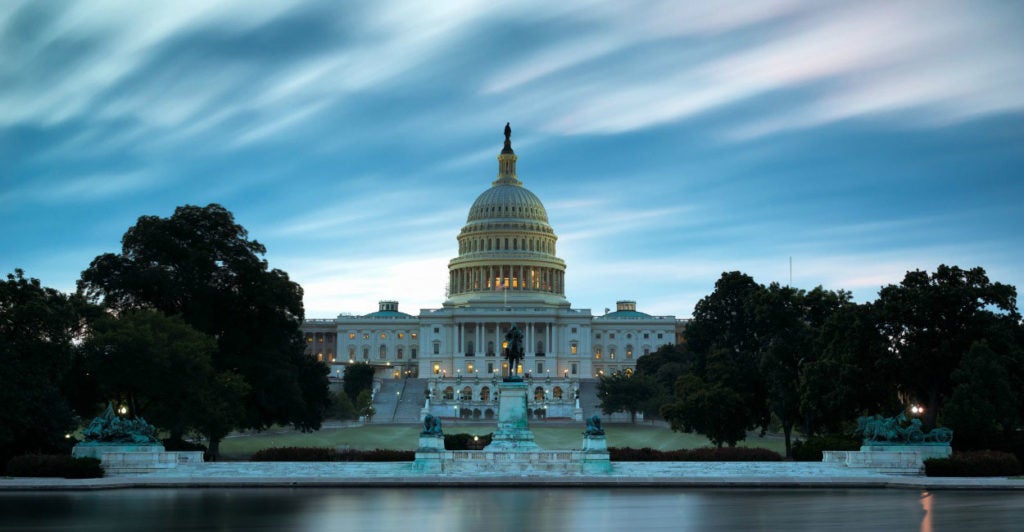Time is running out for negotiations between the Senate and House of Representatives on a conferenced energy bill. For opponents of big government paternalism, that’s a good thing.
The Senate-passed energy bill is fraught with provisions that would increase government’s micromanagement of the energy sector. It is a continuation and extension of the idea that Washington knows best and is better at spending money than the private sector.
While it is unclear as to what exactly will make it out of the conference process, below are some of the most egregious provisions.
Job Training Programs That Won’t Grow the Workforce
This legislation would provide taxpayer money to train the next generation of workers in energy efficiency. Like every other government intervention into the energy sector, this bill misunderstands how markets work and how industries generate workforces.
If energy-efficient products and investments make economic sense, the government will not need to artificially create both the demand and the supply. As the private sector expands, it trains workers appropriately to meet demand—and it will make those investments with its own resources.
Government Handouts That Skew the Energy Market
The bill also provides government “incentives” and handouts for hydroelectric production, demonstration projects for geothermal and hydrokinetic energy, a recycling program for critical minerals and for the government to identify potential supply disruptions to critical minerals, more than half a billion dollars per year to build a “clean” coal pilot project, and an e-prize competition to “implement sustainable community and regional energy solutions that seek to reduce energy costs through increased efficiency, conservation, or technology innovation in high-cost regions.”
None of these activities is the legitimate role of the federal government. Not only do these spending initiatives waste money, but they distort the market by dictating where investments flow, taking labor and capital away from potentially more promising endeavors.
At best, the programs may provide some subsidized production and jobs, which politicians can point to as a positive.
Overall, though, the bill is not the recipe for a sustainable industry and a thriving economy. Nor does it show how those resources could have been more productive in other sectors of the economy. Congress should sunset and eliminate these programs, not retool and expand them.
Energy Efficiency Programs That Misread Our Energy Needs
Other problematic provisions include encouraging renewable energy and efficiency retrofits at schools and nonprofits and providing subsidies for manufacturers to improve energy efficiency. Policies that subsidize or mandate energy efficiency attract cheerleaders from both Democrats and Republicans.
Deemed the low-hanging fruit of the energy policy world, if energy investments make sense, they won’t need help from the government. Markets will drive energy efficiency and consumer and business savings without the help of the government or the taxpayer.
The fundamental problem with the federal government’s efficiency measures is that they ignore the many diverse needs of American families and businesses, who ultimately are the best arbiters of efficiency and how to spend their money.
Expanding the Government’s Land Ownership
A point of contention for the conferees is what to do with the Land and Water Conservation Fund (LWCF). Enacted in 1965, the Land and Water Conservation Fund uses offshore energy royalties to buy private land and turn it into public parks.
The Senate bill would permanently reauthorize the LWCF and would specify that the funds collected could be used not only for land acquisition, but also for hunting, fishing, and recreational purposes as well as conservation programs.
The LWCF enjoys popularity in both parties, helped along by its packaging with ribbon cuttings at local parks and images of scenic lands and wildlife.
Over the years, Congress, the Department of the Interior, and the Forest Service have used the fund primarily to grow the massive landholdings of the federal government, despite its incapacity to effectively manage the land it already owns.
The federal government has a $20 billion maintenance backlog for the land it currently owns—a deficit leading to environmental degradation, soil erosion, gross amounts of littering, and land mismanagement.
Rather than expanding federal lands, Congress and federal land management agencies need to redirect their attention to better maintaining current lands and to granting more control to states and individuals.
Private property rights are paramount to both economic freedom and environmental protection. To these ends, Congress should not permanently reauthorize the LWCF.
Instead, Congress should allow the LWCF to expire and enable more state and local government and private control of America’s land and water.
Sunsetting the fund will result in more efficient and accountable land management, creating and preserving opportunities for economic development, outdoor recreation, and environmental protection.
US Energy Thrives When Washington Intervenes Least
Rather than passing another massive energy bill, Congress should unwind the mess of policies that previous massive energy bills have given Americans such as the renewable fuel standard, the government use of taxpayer dollars to pick winners and losers, and energy efficiency mandates for vehicles and appliances.
These policies have increased cronyism and Washington’s reach into the energy sector, which has proven to thrive quite successfully without federal intervention.
For every success the private sector has, the federal government wants to take energy policy two steps backward. With opportunities abounding next year to unleash free enterprise in the energy sector, Congress should refrain from adding to the pile of garbage that we need to fix.
